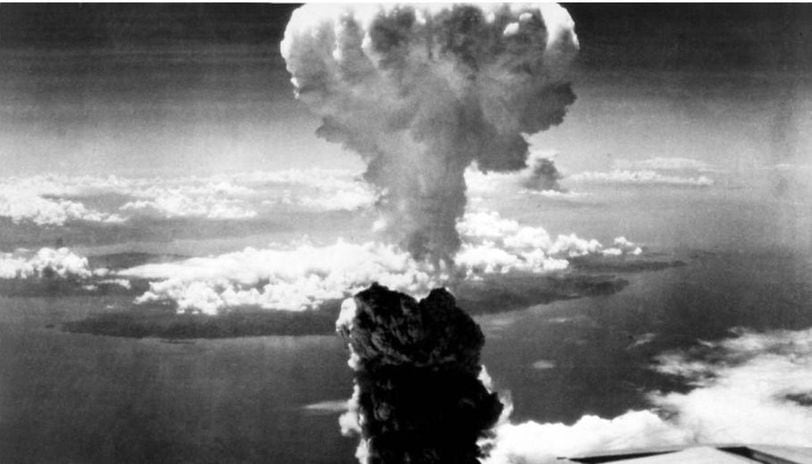9.8. 1945 The atomic bomb fell on Nagasaki
Categories: Second World War , Calendar

In early August 1945, two atomic bombs fell on Hiroshima and Nagasaki. It was a watershed event in history. Humanity entered the atomic age.
On August 6, 1945, a B-29 Enola Gay dropped an atomic bomb on the city of Hiroshima. Eighty thousand people were killed on the spot and another hundred thousand were seriously injured. A second strike followed on August 9, 1945; this attack resulted in sixty thousand injuries. Only after the second nuclear strike came the Japanese surrender, which was officially announced on 14 August 1945 and signed on 2 August 1945.
The dropping of the two atomic bombs on Japanese cities became an event of groundbreaking historical significance. "Above all, it meant that mankind had, so to speak, entered the atomic age, because these weapons demonstrated a power unimaginable until then gave the possibility of shortening the path to final victory and the unconditional surrender of the enemy," writes Jan Eichler in From Sarajevo to Hiroshima. War and Peace in the First Half of the 20th Century.
Even with the high number of casualties, Hiroshima and Nagasaki meant less "havoc" than the than would have been the case with the landings and the fierce ground fighting that followed. Inseparably, Hiroshima and Nagasaki also became a memento for subsequent generations of militarystrategists and statesmen, becoming a warning to them of the unimaginable effects of these weapons.
In addition, on 9 August, Soviet troops entered Manchuria and began to occupy the Kuril Islands. Just six days later, the people of Japan were already hearing the voice of Emperor Hirohito on the radio, telling the nation that the war situation was not going well for Japan. The Emperor capitulated, relinquishing his divine lineage a few months later in January. United States troops officially took control of Japan.
The Emperor was aware that continuing the war would mean the annihilation of the entire nation for Japan. And so he must accept the Allies' ultimatum, and endure what was sure to be a very harsh one. The generals remained in opposition, they wanted to fight, but they submitted to the Emperor's decision.
On 10 August 1945, Groves told Marshall that the third atomic bomb would be ready for dropping on 17-18 August. It was to annihilate Japan. Even so, there was still the threat of a mutiny by the military in Japan. "And Major Kenji Hatanaka even mutinied, with a group of soldiers surrounding the headquarters and seeking a recording of the Emperor's radio speech. He did not dare to attack Hirohito himself, and eventually shot himself," says Karel Pacner in his book Fateful Moments of the Twentieth Century.
Sources: Jan Eichler
, From Sarajevo to Hiroshima. War and Peace in the First Half of the 20th Century
Lingea Ltd, Guide to Japan
Karel Pacner, Fateful Moments of the XXth Century
www.republicworld.com
The article is included in categories: